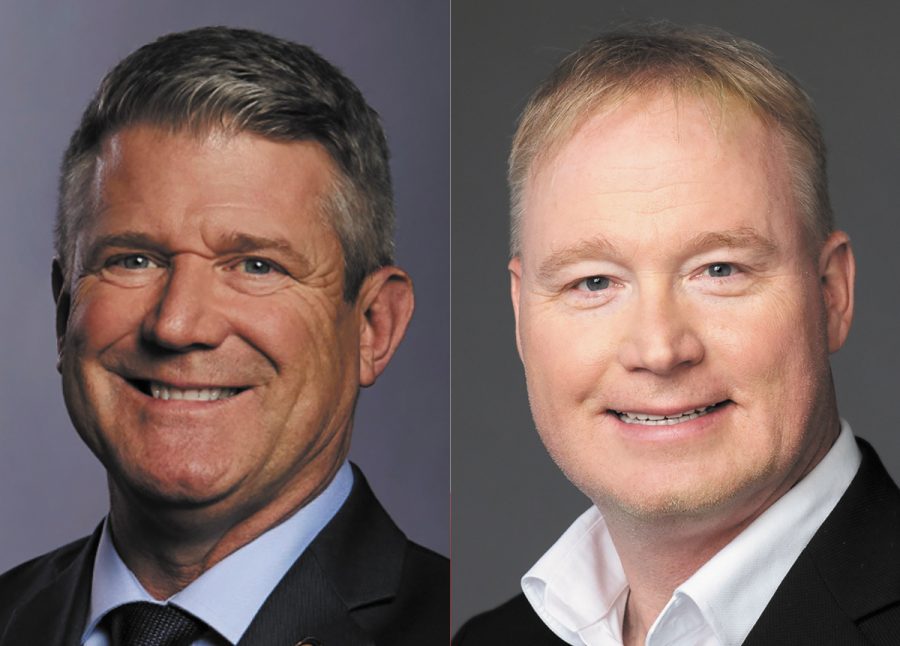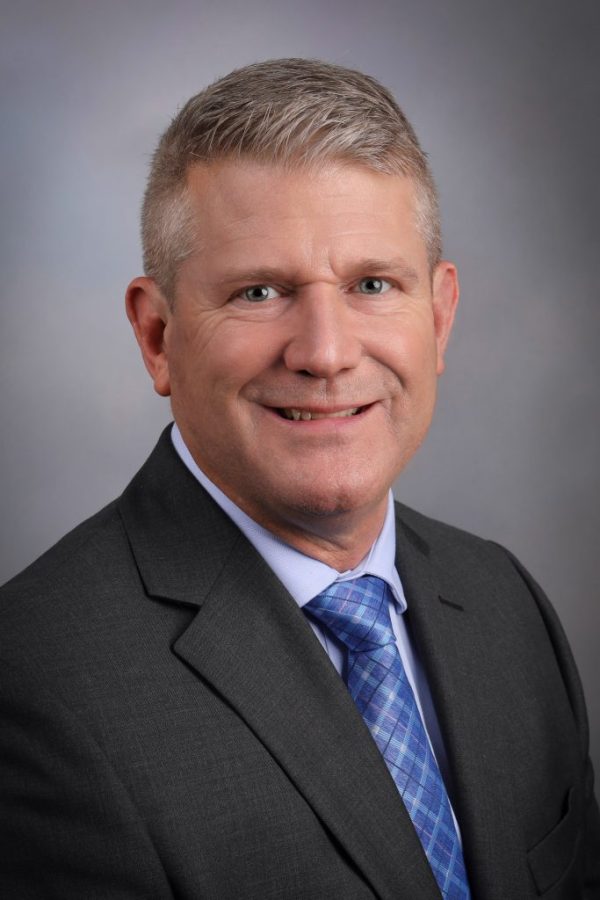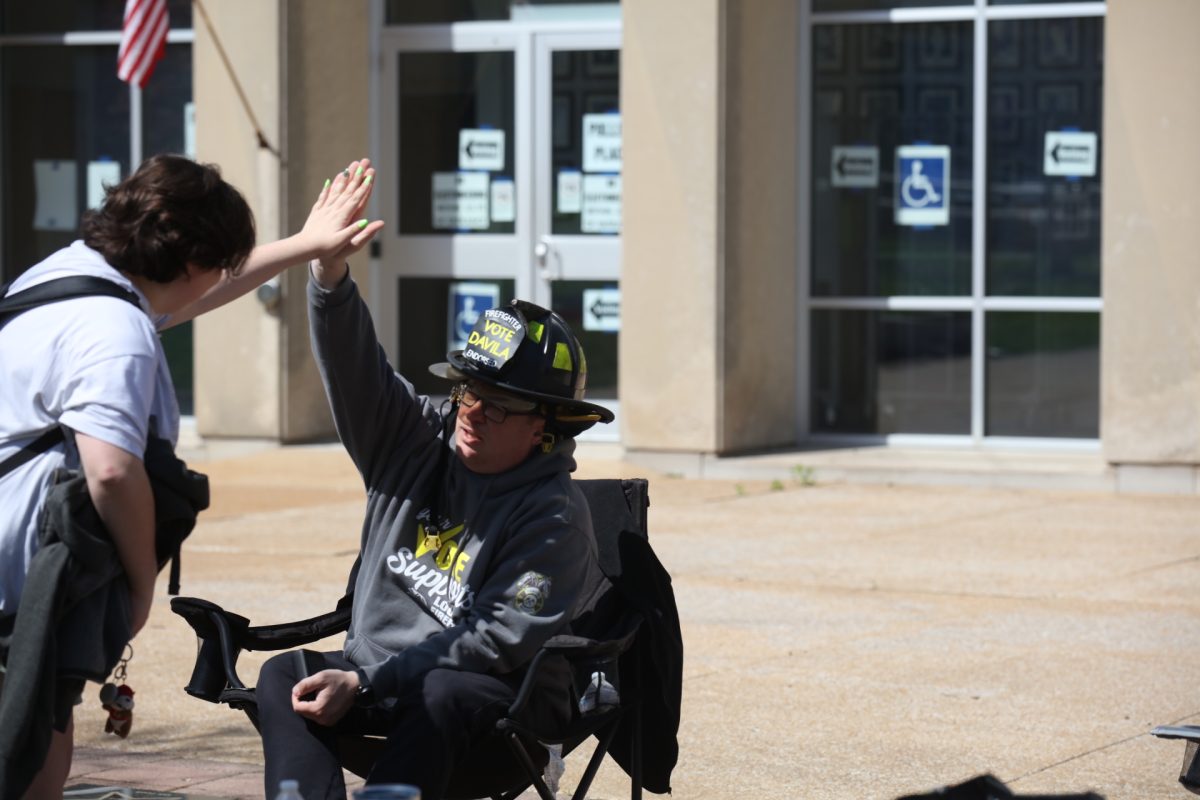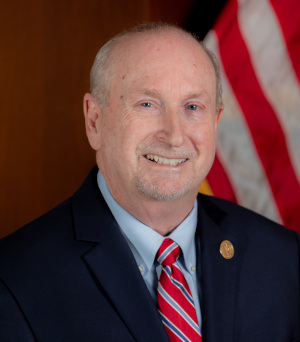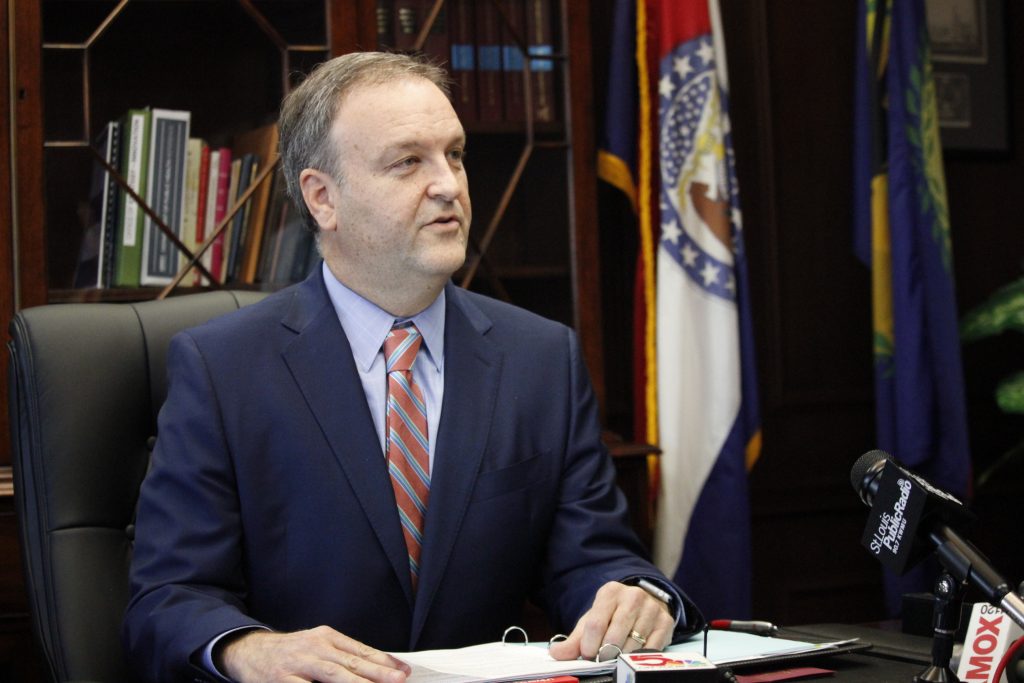Rep. Doug Beck, D-Affton, discussed issues such as health care and the economy with his Republican rival for the 1st District Missouri Senate seat, political newcomer David Lenihan, in a virtual forum hosted Friday by the St. Louis Regional Chamber.
Beck is a former member of the Affton Board of Education and current representative of the 92nd District in the Missouri House after first taking office in 2016. He is running against Lenihan, CEO of Tiber Health and president of Ponce Health Sciences University, to take the seat held by Sen. Scott Sifton, D-Affton, who is term-limited.
The general election will take place Tuesday, Nov. 3.
The candidates were asked a series of questions about their goals for the office and what they could do for the 1st Senate District in the Legislature by chamber Vice President of Public Policy Austin Walker.
“I think for me, everything that we’re going to be talking about today is going to have to be wrapped around COVID and the pandemic that we are facing currently,” Beck said in an opening statement. “As we look around today at the policies that have been in the state during this pandemic for the last seven months, we haven’t learned anything. … We have to get this virus under control, that has to be the overreaching message …”
Lenihan, who has doctorate degrees in neurosurgery and electrophysiology, emphasized that his experience in health care and education gave him a unique perspective for the Senate seat.
“When we look at the Missouri budget, it’s $35 billion. Over 55 percent of that $35 billion is allocated to education and health care. These are topics that are extremely complex and significant,” said Lenihan. “We need to make sure we elect people that understand how to be able to figure that stuff out. … Health care in particular is … almost 25 percent of our budget.”
Beck, who was born, raised and has spent his “entire life” in South County, pointed to his years accomplishing “so many good things” on the Affton school board and his time serving as both a representative and volunteer with food drives for the Affton Christian Food Pantry and Feed My People fighting food insecurity as reasons he is qualified to represent more than 180,000 residents.
“Public office has never been the end goal for me. It was to help out families like my own with those kitchen-table issues that they face,” Beck said. “People today are facing unemployment … I know what it’s like to be unemployed. … I understand when you have to make cuts and have to decide if you’re gonna get medication or not. … I know what these people are dealing with in the 1st District.”
The candidates proposed different approaches to improving the regulatory climate for businesses in the state, with Beck focusing on local control while Lenihan hopes to identify “opportunity zones” in areas of need in both rural and urban Missouri.
“This is really one of the reasons why I’m running, and I’m very excited about this … I’m going to give you … ideas that aren’t being discussed. How do we create an Enterprise Investment Scheme? What that does is that it allows people like you to take money that you would have paid in taxes and invest that in a new business. … It creates jobs, it promotes growth,” said Lenihan. Opportunity zones could “make sure (businesses) have some incentive to go into these markets and provide assets for people.”
Beck said in his six years as a member of the Affton Chamber of Commerce, many problems his fellow members encountered have revolved around local and county ordinances and licensing requirements.
“My belief is that the state should not encroach on local government. … I think a lot of these conversations need to be had on the local level to get everybody to streamline these regulations,” Beck said. “But as elected officials, we can help our small businesses navigate the myriad of regulations that constituents face in opening a small business. …”
The candidates also disagreed on how to address systemic racism and economic inequalities in the region.
“I want to clear the record up right here and now … I do not support defunding the police. … But I like to look at issues that face policing as much of the same burdens that we place on our teachers. We ask our teachers to be so much more than the job they signed up for. We ask them to be parents, we ask them to be social workers. … That’s what we’re doing with our police also,” said Beck.
“We have systemic racism throughout this country and the police department is no different. … There are real issues that we need to address, and everyone should be at that table that reflects all communities, including people of color, police, clergy and local leaders. … We can address a lot of our region’s inequalities by investing in our underserved communities.”
Lenihan said that more resources need to be provided to police departments to train them on de-escalating situations and addressing individuals with mental health problems.
“We need to increase our training with our police officers. Provide them with the resources that they need in how to deal with mental health issues and how to de-escalate and provide body cameras to … the police. This requires an investment,” said Lenihan.
“Eventually this news will settle down and we’ll go back to the same what do we do, what do we not do. We have a choice right now in how to fix this problem and it’s something I’ve been active with for the last 20 years. … If we really want to end racism and abolish poverty, we need to create opportunities. We need to give people jobs. … This is what I’ve been doing all the time, from creating new universities, to providing new doctors, to creating new health systems … This is not just politics for me. Win or lose, I’m doing this tomorrow. I’m doing this every day of my life.”



